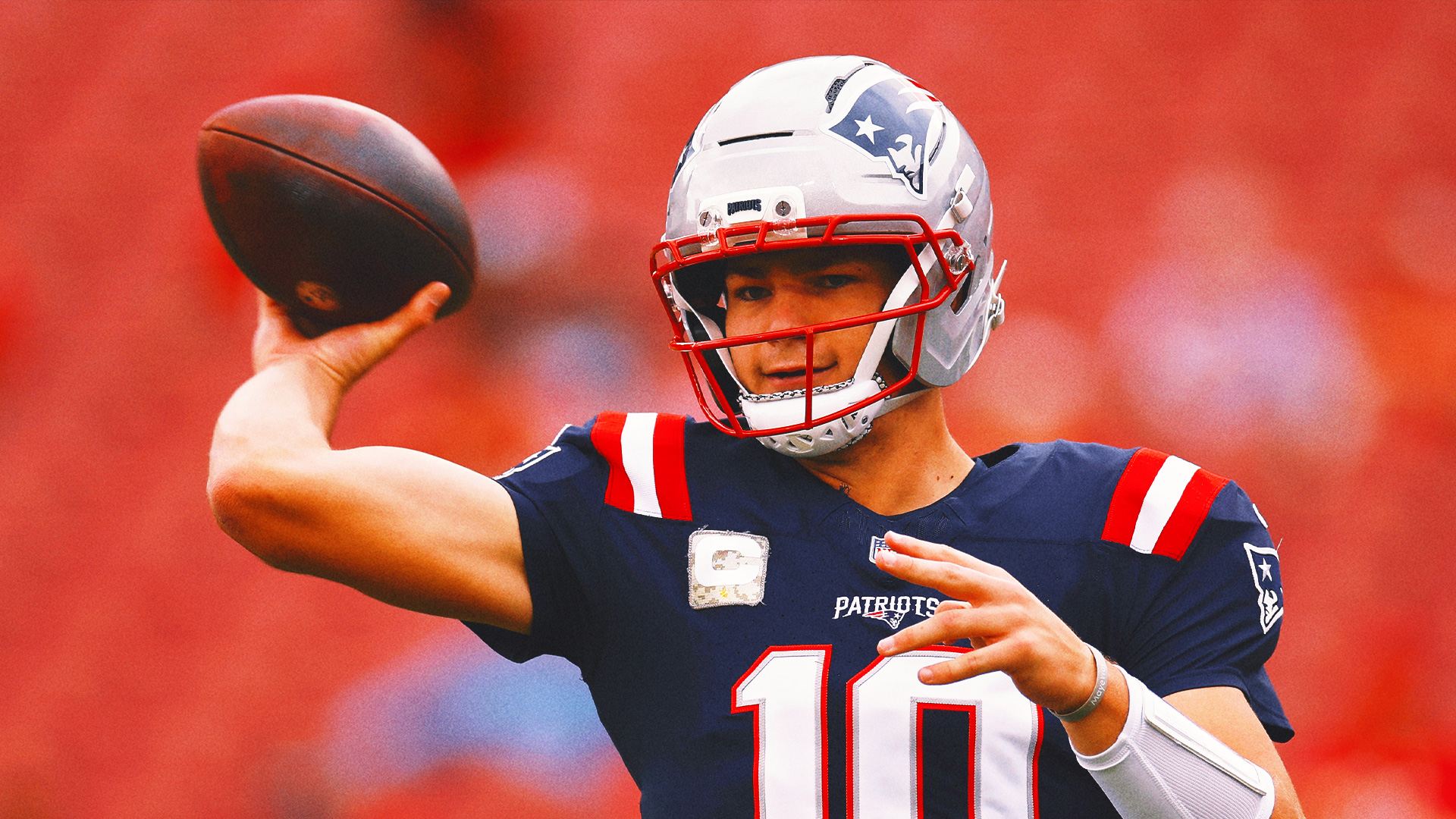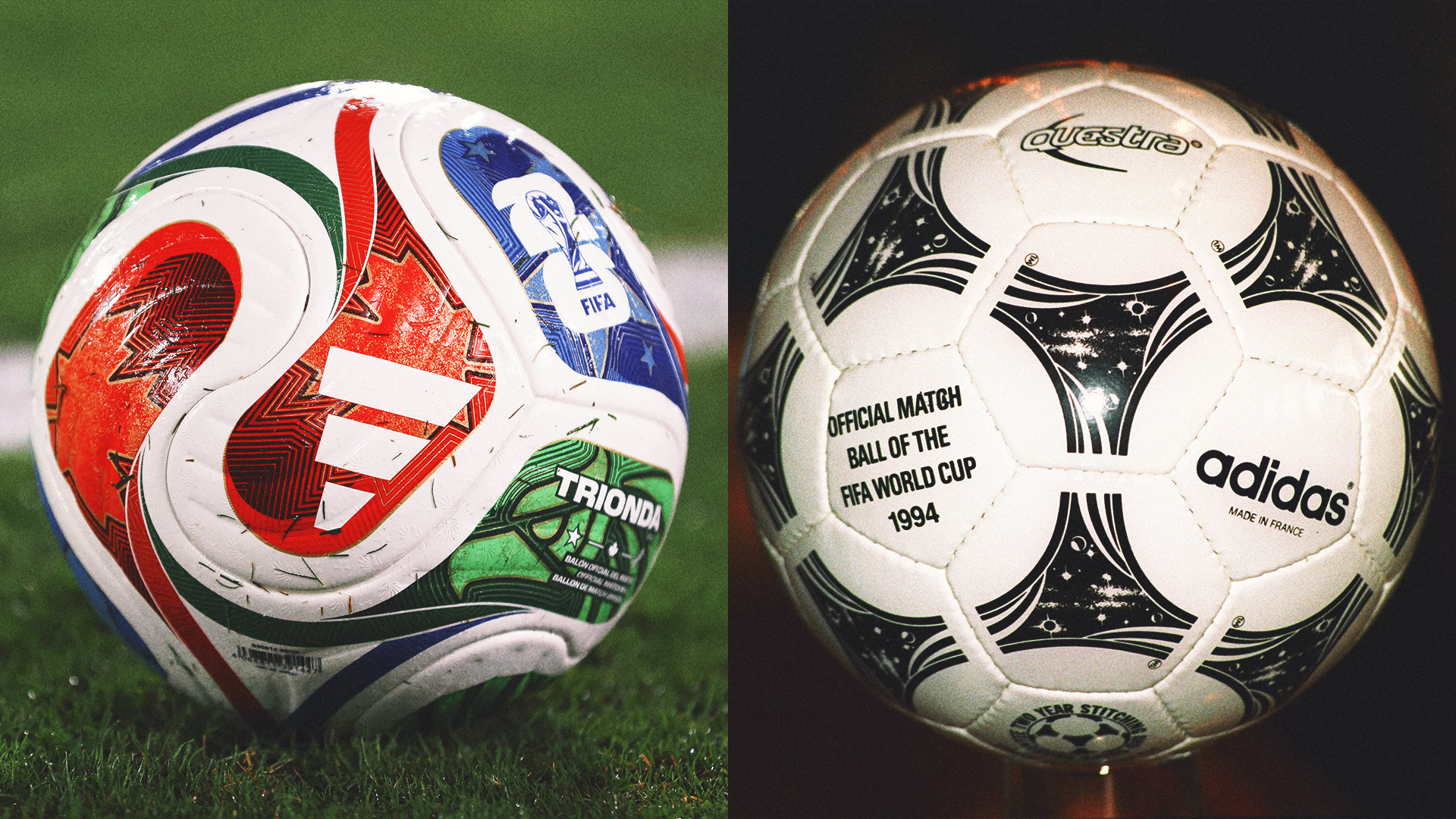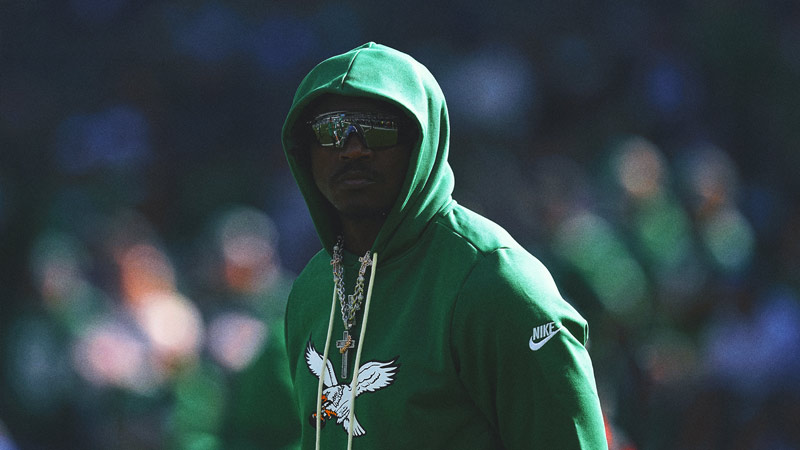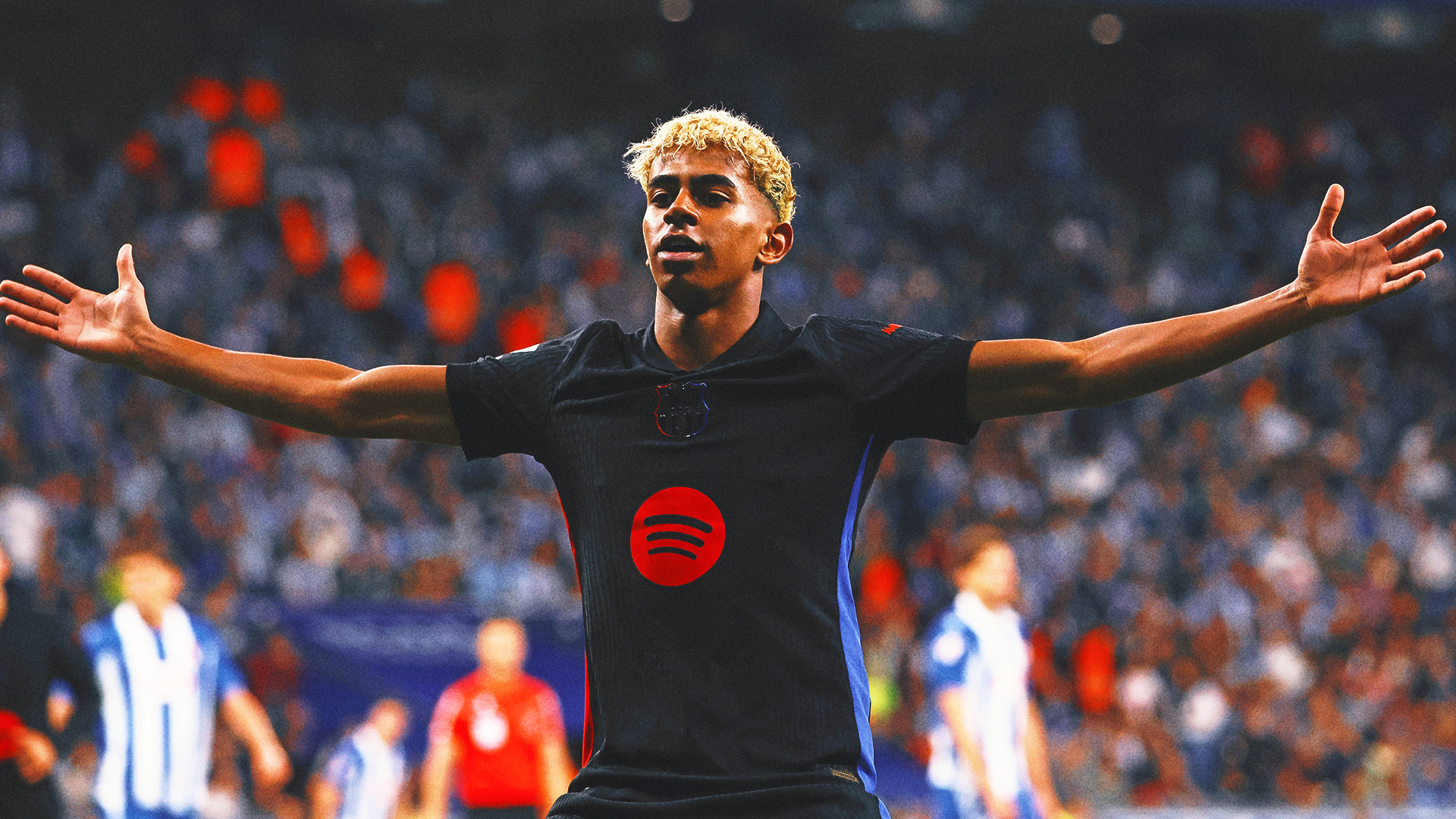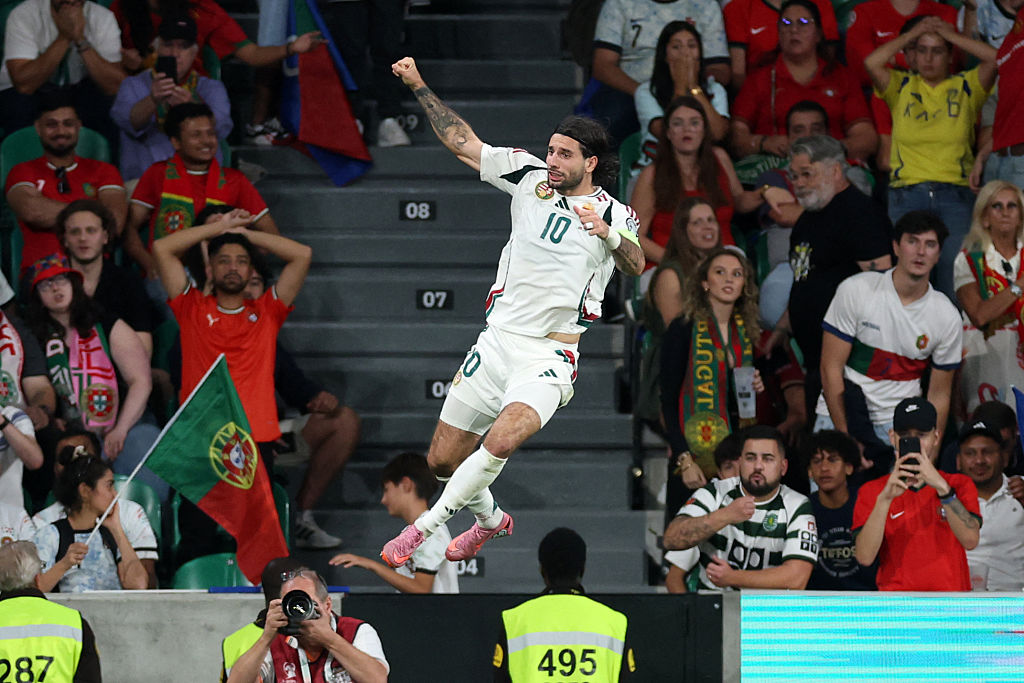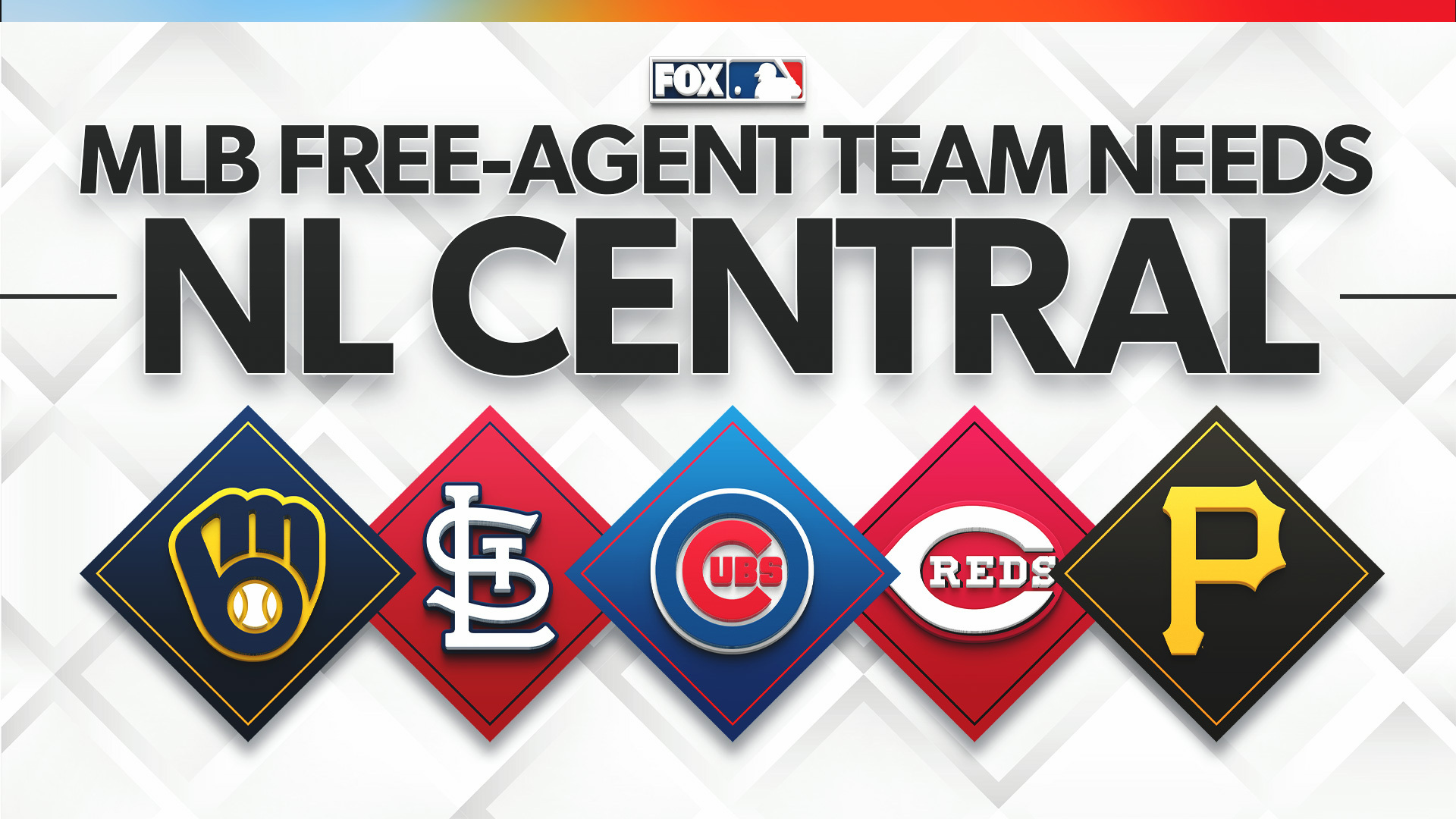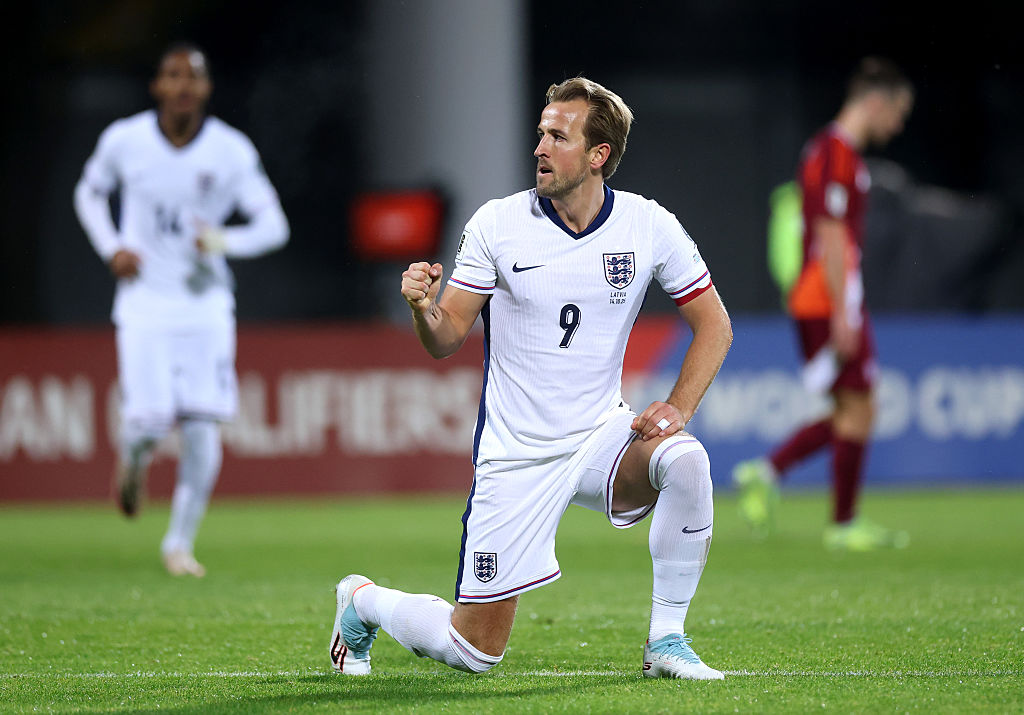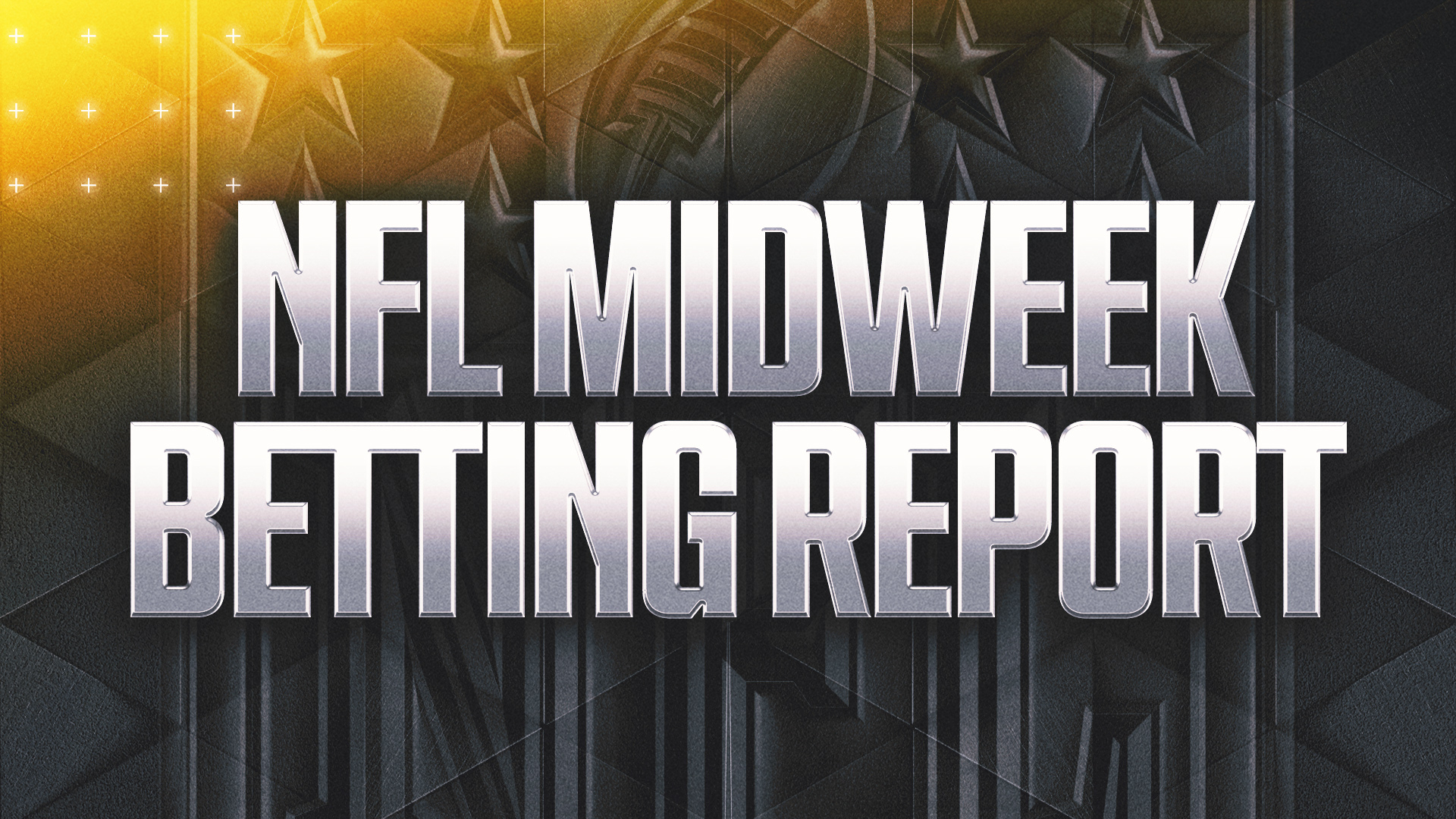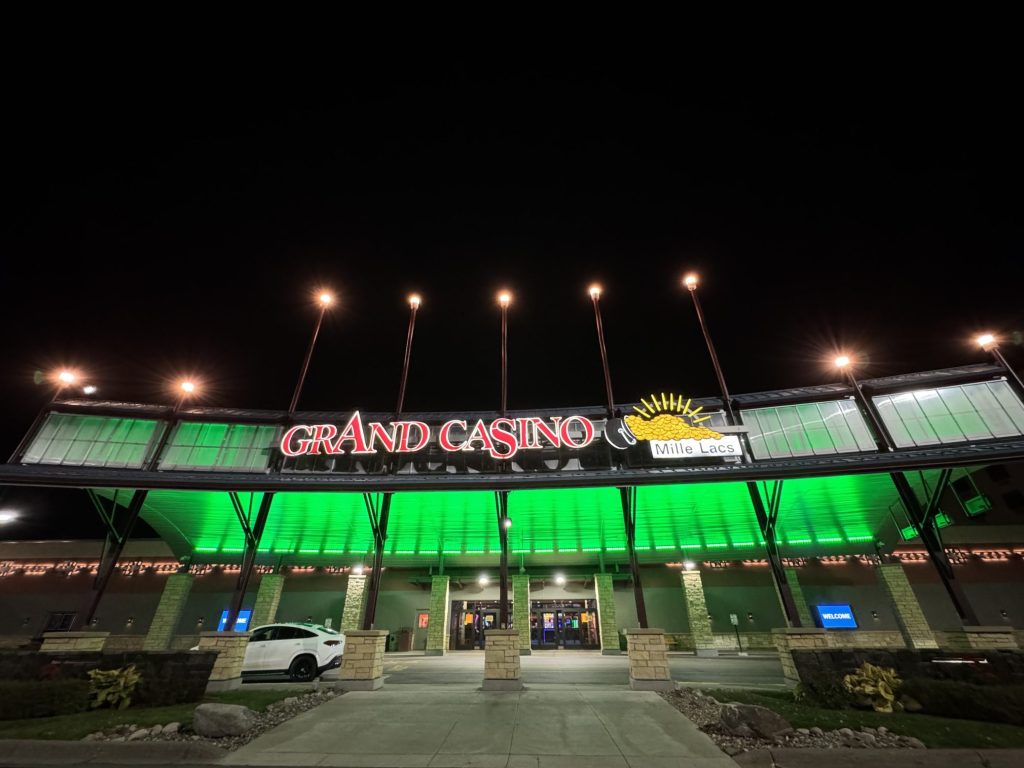On Nov. 27, 2024, prosecutors in the state of Oregon charged Daniel Bowdoin with five counts of child sex abuse. Bowdoin was the CEO and COO of a major track meet timing and results company, and he continued in his job—and appearing at meets—for nearly a year after.
How he did so raises major questions about the systems designed to prevent abuse in sports.
Four months after being charged with rape, Bowdoin passed a USA Track & Field background check, the organization tells Front Office Sports.
USATF requires its contractors and vendors, including Bowdoin’s AthleticTIMING, to submit to regular background checks it outsources to a company called the National Center for Safety Initiatives.
A spokesperson for USATF tells FOS the governing body is “deeply troubled by NCSI’s failure to discover the reprehensible allegations.” A spokesperson for NCSI says: “We cannot comment on an individual’s background check, but this was not a failure of the system.”
USATF was not the only major organization to miss that Bowdoin had been charged with abusing a child. The organization created by Congress to investigate accusations of abuse in sports, the U.S. Center for SafeSport, didn’t suspend Bowdoin until last week.
Athletic, founded by Bowdoin’s brother David in 2004, has a major presence in track and field. Until last month, Daniel Bowdoin was CEO of AthleticTIMING, one of the sport’s biggest timers, and COO of AthleticNET, the company’s results and event management service. His brother Davis is AthleticNET’s chief product officer, but despite the family connection, Athletic says it didn’t learn about the charges against Bowdoin until Oct. 18, 2025. Bowdoin told the court earlier this year that he had been “outsourcing many of my work responsibilities.” (Bowdoin was not involved in the media side of the business, Runnerspace, which acquired AthleticNET in 2015.)
Bowdoin attended four track meets this year, the company said. His release agreement prohibited him from contact with minors; the meets appear to have been for college and adult runners.
As Bowdoin moved through the criminal justice system, most of the track world was left in the dark until an anonymous post on an online message board surfaced last week.
“When someone is criminally charged with child sexual abuse, there needs to be timely and effective cross-reporting so that the safety systems are in place to protect athletes and to protect children, and the failure to activate those systems created this extended failure of policy,” Grace French tells FOS. French is the president and founder of the nonprofit The Army of Survivors, which seeks to prevent sexual violence in sports.
State prosecutors first presented five counts of rape, sodomy, unlawful sexual penetration, and sexual abuse against Bowdoin on Nov. 27, 2024. These included five separate accounts of abuse against the same child between 2021 and 2023, when the victim was between four and seven years old, according to court documents. On Jan. 6, 2025, Bowdoin and a temporary judge signed a conditional release agreement saying he would have no contact with the victim, “minors or where they congregate.”
It appears that Bowdoin managed to stay out of custody for nearly a year after prosecutors announced charges. A court record from Nov. 27, 2024 ordering him to have no contact with the victim says Bowdoin “has been lodged in the Marion County Jail,” but a spokesperson for the Marion County Sheriff’s Office tells FOS that Bowdoin was not in the jail at any point before he turned himself in and was released earlier this month.
Bowdoin’s attorney, Daniel Lounsbury, has not commented on the case.
Ahead of the 2025 outdoor track season, Bowdoin unsuccessfully tried to amend his release agreement so he could have explicit permission to work middle school and high school track meets with a chaperone. The judge denied the request, but Bowdoin still attended four meets for adult and college runners, even though he had admitted to the court that children and youth attend these events.
According to a letter Bowdoin submitted to the court, Athletic works at 500 events annually; he described his duties as being mostly located in the press box and occasionally working with equipment on the infield of the track.
Bowdoin, 38, worked at Athletic until October 2025, shortly after the company claims it first heard about the charges—11 months after they were first filed. A spokesperson for Athletic did not respond to questions about when Bowdoin’s brother, David, first heard about the charges. On Oct. 29, the state prosecutor said Bowdoin violated his release agreement by having contact with minors, and he turned himself in on Nov. 2. SafeSport, USATF, the Oregon School Activities Association, and Nike, whose massive high school national championship meet Bowdoin had wanted to work, all say they learned of the charges last week. Bowdoin was released from jail earlier this week.
A Background Check System’s ‘Failure’
USATF requires routine background checks through NCSI and trainings for “contractors/vendors with access to athletes,” which would include a timer like Athletic. The screenings green-light individuals for two years, with an automatic re-check at the one-year mark.
“Daniel Bowdoin submitted his information to NCSI, the firm USATF uses to conduct background checks in March of 2024,” the USATF spokesperson tells FOS. “As per their standard procedure, he was rechecked in March of 2025. We contacted NCSI to question why the March of 2025 check did not flag charges against Bowdoin. They described it as a ‘failure’ of their system.
“We are deeply troubled by NCSI’s failure to discover the reprehensible allegations, and we are taking the proper steps to ensure it does not happen again.”
NCSI, which is the firm used by the U.S. Olympic & Paralympic Committee, describes itself as “the trusted name in youth safety.” Its website says more than 60 national governing bodies use NCSI “to protect their members and athletes.” NBC Sports bought the company in 2017.
A spokesperson for NCSI tells FOS that Bowdoin’s case “was not a failure of the system,” but did not answer additional questions about how he passed the re-test in March.
USATF’s website says that anyone found to have “pending dispositions” for sexual crimes will be deemed “ineligible” and unable to participate in USATF in any role that requires athlete safety compliance. The governing body previously told FOS that it had not credentialed Bowdoin to attend an event since 2023.
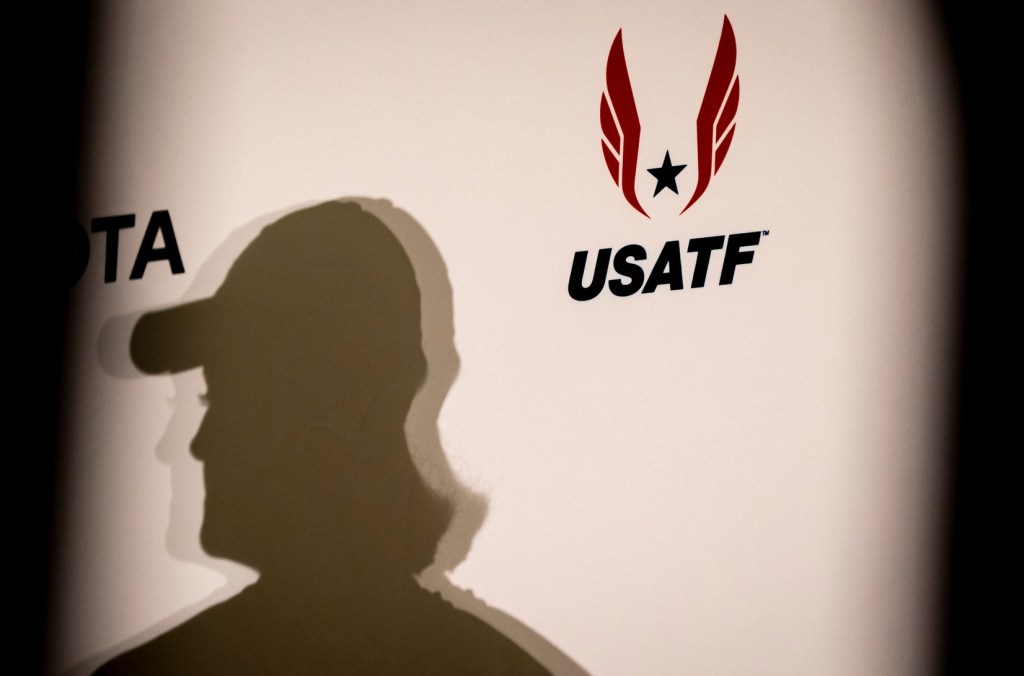 Ben Lonergan/The Register-Guard
Ben Lonergan/The Register-Guard SafeSport’s Role
On Friday, SafeSport added Bowdoin to its disciplinary database for “allegations of misconduct” and issued a temporary suspension, nearly a year after his charges first appeared, and 20 days after Athletic claimed to have first learned of them.
Congress established SafeSport in 2017 in the wake of the Larry Nassar scandal—in which the former Michigan State and USA Gymnastics doctor abused hundreds of athletes over two decades—to prevent sexual abuse in the Olympic sports pipeline. (French founded her organization after coming forward as a survivor of Nassar’s abuse.) The SafeSport Code lays out prohibited conduct, and when someone violates those rules, the Center can temporarily or permanently ban them from all activities involving the USOPC, governing bodies of sports, or any organization affiliated with a governing body. SafeSport doesn’t wait for a criminal verdict; the Center can issue suspensions and launch investigations for criminal charges or reported allegations.
SafeSport has had its own issues in its brief existence. Earlier this year, it fired its CEO, who had hired an investigator later charged with rape. Athletes have criticized SafeSport for taking years to handle cases, and reports have found individuals banned by the Center still found pathways back into youth sports. A group commissioned by Congress last year published a 277-page report of recommendations to improve the Olympic and Paralympic movements, largely concentrating on enhancements to SafeSport. Legislators introduced a bill in December to increase funding and speed up investigations.
SafeSport’s disciplinary process typically begins when the organization receives a report. In Bowdoin’s case, SafeSport wasn’t notified when the charges were first presented, it wasn’t notified when he petitioned the court to work track meets with children, and it wasn’t notified when he turned himself in on Nov. 2 of this year after, prosecutors claim, breaking his release agreement by having contact with minors. (Described in court documents as a “danger to public,” Bowdoin was held for several days on $1 million bond. According to online records, his bail was posted on Monday and he was released from jail.) SafeSport does not comment on individual cases.
People who were aware of the case and could have filed a report to SafeSport include Bowdoin, his attorney, and his therapist and friend, two people he indicated in court records could serve as his chaperone at track meets.
But several others could’ve given SafeSport, Athletic, USATF, or OSAA notice of Bowdoin’s charges, including law enforcement, state prosecutors, members of the court, or a state or local Child Protective Services agency, experts tell FOS.
“If we’ve got somebody in a youth-serving organization, the youth-serving organization or the body that governs that youth-serving organization should be notified, and we need to set up parameters of who needs to do that notification,” Sandi Johnson, the senior legislative policy counsel at the Rape, Abuse & Incest National Network, tells FOS.
Requiring prosecutors or courts to flag charges to a defendant’s employer or an entity like SafeSport is a slippery slope, although reporting requirements are not unheard of. Some states require doctors to self-report charges to the state’s medical board.
But courts aren’t always aware of a defendant’s employment status, and more importantly, all defendants are innocent until proven guilty in the court system.
“Notifying systems prior to [proving charges in court] could result in civil liability for our office, such as contractual interference with employment, slander, or defamation,” Marion County chief deputy district attorney Brendan Murphy tells FOS. “Furthermore, there are ethical rules that prohibit prosecutors from disclosing case information outside of court.”
Johnson says that in lieu of courts or prosecutors, CPS or law enforcement could both be tasked with those alerts. According to court documents, both Oregon’s Department of Human Services (which houses the state’s CPS division) and local law enforcement have been involved in Bowdoin’s case. John Clune, an attorney who has represented victims in several prominent sexual abuse cases, tells FOS he’s seen law enforcement give notice in situations like this, though it generally isn’t required. Johnson also says more education and awareness is needed about SafeSport and what it does by both the general public and trained officials.
Representatives for Oregon’s DHS did not provide a comment, while the Salem Police Department deferred questions to the District Attorney’s office.
Judge Rosemarie Aquilina, who presided over the Nassar case and sentenced him to up to 175 years in prison, suggests a confidential database between institutions that could keep everyone informed and allow for entities like SafeSport to issue suspensions while maintaining privacy for the accused. She says SafeSport could also hire staff to check court records themselves. “They don’t have the protocols and safety nets yet in place, and there are multiple that could be in place,” Aquilina, who called Bowdoin’s case “appalling,” tells FOS. (Aquilina came under fire late in the Nassar case for suggesting that the disgraced doctor deserved to be raped in prison.)
“Until they really get aggressive and have some really strict rules and some database sharing that is kept confidential, so we’re not violating the Constitutionally protected rights of people being presumed innocent, but we are at least protecting children and the integrity of the game, the sport, and the safety, we’re failing,” Aquilina says. “Why are we failing?”
‘He Was Not Really Being Monitored’
The biggest question is why the court was comfortable with such loose restrictions on Bowdoin after he was charged with raping a child.
The judge presiding over the case—who did not sign Bowdoin’s initial release agreement—told the defendant in March he would not have let him out on release and wasn’t sure how he was out on these charges, according to court records.
Aquilina says that in first degree sexual misconduct cases, she usually keeps the accused in custody, or puts them on a GPS tether with strict requirements about their interactions with minors. She also says mandated pre-trial services could’ve required Bowdoin to specifically get permission for the meets he did attend. “He was not really being monitored,” she says.
A more specific release agreement could’ve helped as well. Bowdoin himself was confused about whether his order to have “no contact with minors or where they congregate” applied to collegiate meets. “While I don’t believe my presence at a collegiate meets is would be [sic] a violation of my conditional release agreement, there are some minors at some [sic] these events and I want it clarified that I can be there for my work,” Bowdoin wrote in a letter to the court in February.
The judge denied the main request of Bowdoin’s letter: to attend events for children and youth runners. But it’s unclear from court records whether the judge gave him approval to work the four over-18 track meets.
“Even at the college meets, there’s going to be plenty of underage kids there as spectators, high school athletes that are there to watch, and these are not the most heavily secured competitions,” Clune says. “It seems like it would be very difficult for somebody to work an event like that with any sort of assurance that you’re not going to have interaction with somebody under the age of 18.” (Even though Athletic said none of the four meets that Bowdoin worked in 2025 included “minor-aged participants,” it’s possible some collegiate runners were under 18.)
Athletic declined to confirm which four events Bowdoin attended.
He had requested clearance for four collegiate meets in his letter to the court, and the host of one of them, Southern Oregon University, confirmed to FOS that he worked the Cascade Conference Championships on their campus in May. But the host of another one, the Oregon Institute of Technology, said Bowdoin did not work the meet in question.
What’s Next
Cases like Bowdoin’s almost always end in a plea deal before the defendant goes to trial, experts say. Bowdoin’s trial is currently scheduled for April.
Clune says Bowdoin’s case is “about as aggravated of a fact pattern as you see in the criminal justice system,” and doesn’t expect much leniency by the prosecutors presenting the agreement. The maximum sentence for the four Class A felony counts is 20 years in prison, while the maximum for the one Class B felony is 10 years.
In Oregon, parole boards require those convicted of sex crimes to have no contact with minors or where they congregate upon release.
Now that SafeSport has issued its temporary suspension, the Center will review the case to determine if Bowdoin violated its code and issue a finding through the disciplinary database. The organization can make a new ruling if the charges are dropped or Bowdoin is acquitted.
In addition to any potential sanctions on Bowdoin, a SafeSport investigation could target some of his colleagues at Athletic, because the Center’s code specifies that failing to report misconduct is a violation of its code. While SafeSport will likely investigate Athletic’s claim that it did not know about the charges before Oct. 18, the company could also be in trouble for not reporting to the Center when they became aware on Oct. 18, weeks before Bowdoin appeared in the SafeSport database. “That’s the only place that I see that affirmatively, somebody would’ve had an obligation to report this to the Center,” Clune says. David Bowdoin in particular could face repercussions if SafeSport finds he knew about the charges at any point and failed to report them.
French says Bowdoin’s case highlights the need for additional policy solutions that establish clearer lines of communication.
“People think that there’s only certain sports that are affected or there’s only certain bad eggs, but really it’s an institutional failure,” French says. “This is not about one sport, or one person, or one perpetrator. It’s an entire cultural reform that has to happen in order for us to continue to prioritize athlete safety.”
The post Track CEO Charged With Child Rape Passed USATF-Ordered Background Check appeared first on Front Office Sports.

 1 hour ago
4
1 hour ago
4






